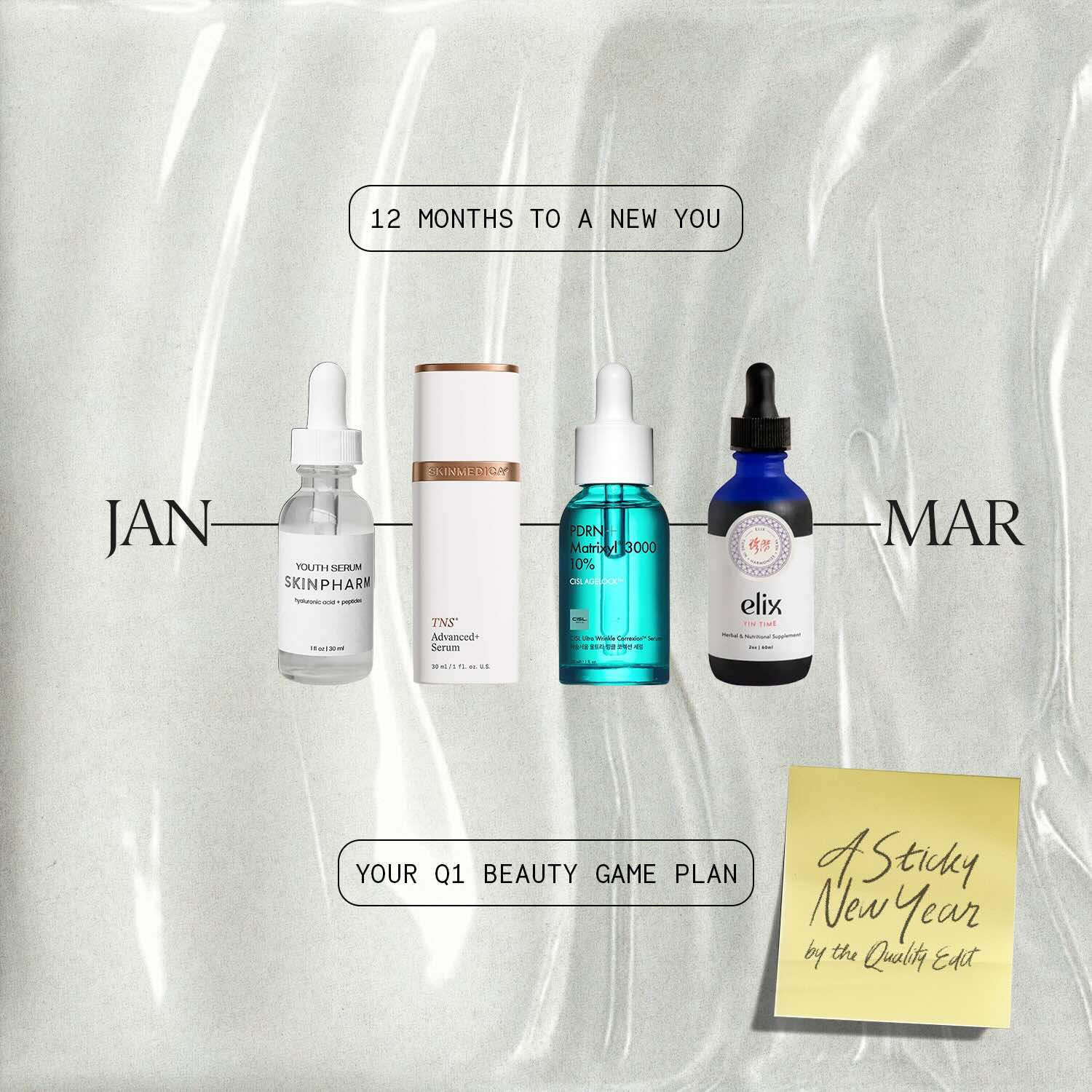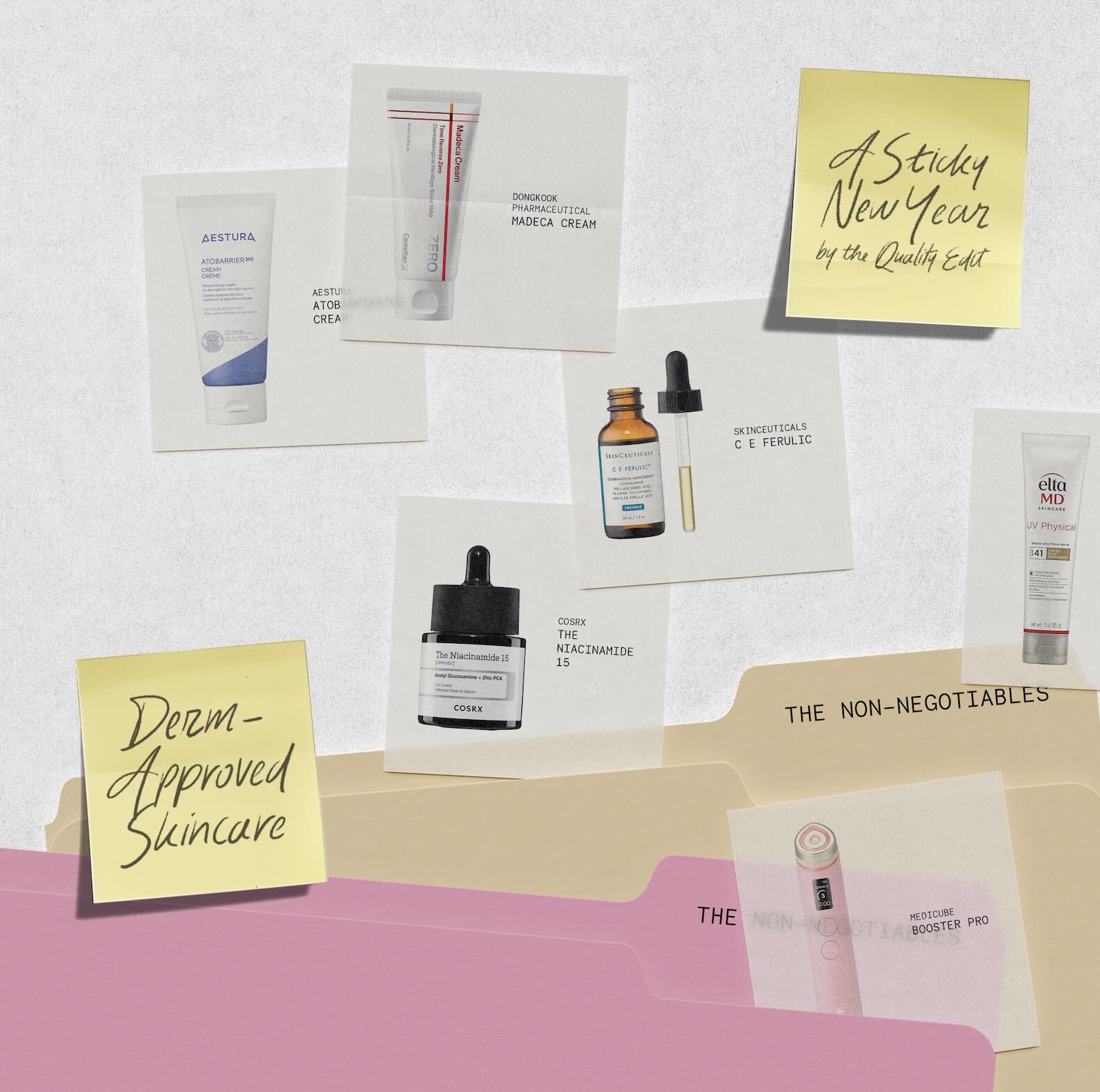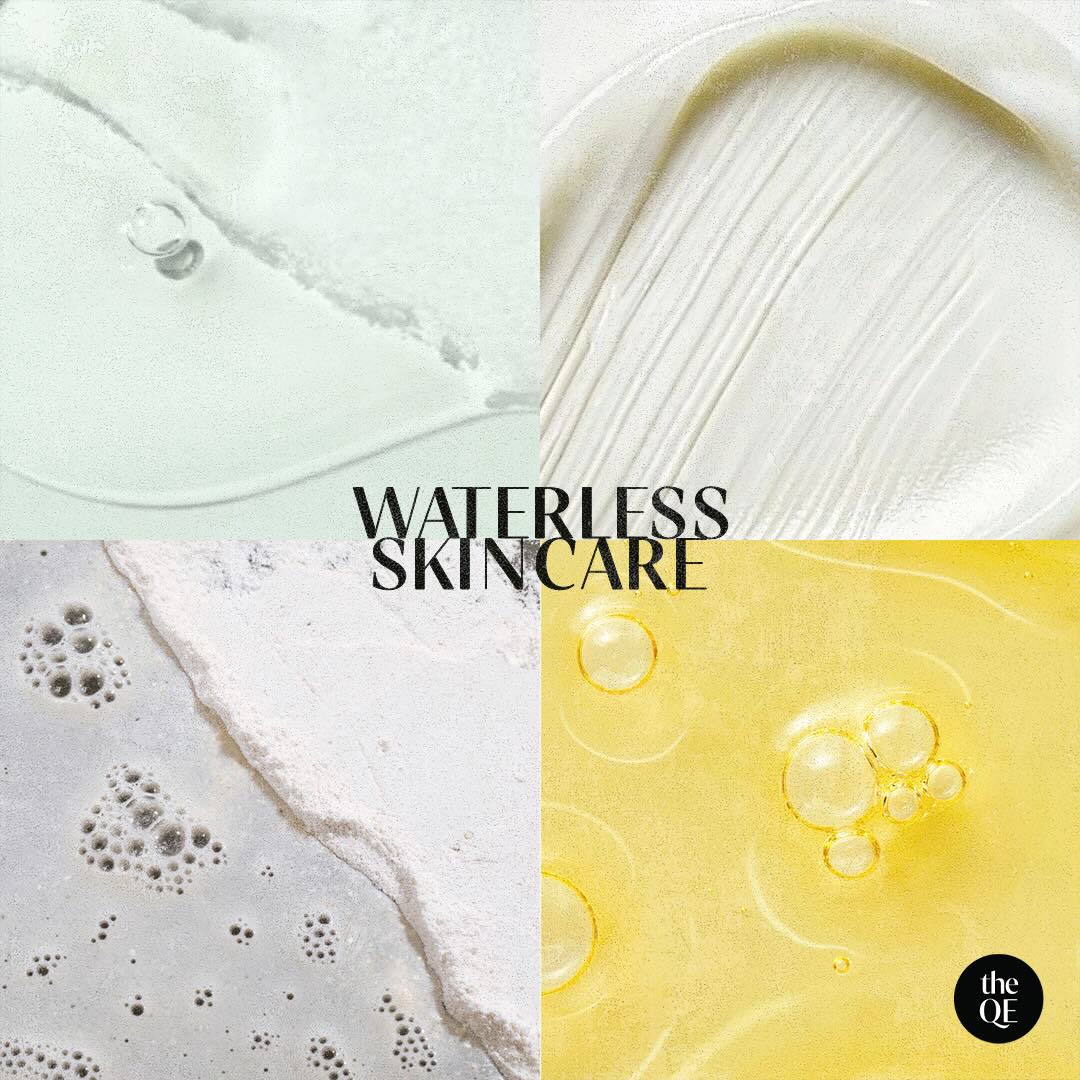I can’t put my finger on exactly when it happened. Maybe the pandemic, when all that time getting work-ready and commuting was replaced with hopping on Zoom calls and slipping into elastic pants. Suddenly we weren’t spending our money on dining out, but instead investing in sourdough starter kits and self-care products. Beauty trends––and brands––quickly adapted.
The popularization of anti-aging body care caught fire, with ingredients like retinoids, a form of Vitamin A, front and center. Known for their ability to help increase cell turnover, stimulate collagen production, and decrease inflammation, retinoids are the holy grail of brighter, firmer, smoother skin i.e., they’re key to younger-looking skin. But not all retinoids are created equal. There’s retinol, retinal, tretinoin (also known as all-trans retinoic acid), adapalene, and more. How are we to choose?!
We like
We don't like
What, Really, Makes a Good Retinoid Body Product?
I’ve been obsessing over body care since I was probably the only 15-year-old in America slathering my skin in Neutrogena Body Oil after the shower, but anti-aging body care is a relatively new practice for me. While I have noticed improvements in skin tone, texture, and radiance since I began using retinoids from the neck down, I wanted to know: With all these different formulations, and so many products flooding the market, what, really, makes a good retinoid body product? How do we know which one is “better” than the next? Turns out, the answer is not so straightforward.
“It is difficult to truly compare among brands as the retinoid may not structurally be the same. There are often proprietary formulations specific to that brand,” says board-certified dermatologist and owner of Epoch Dermatology, Dr. Nicole Lee, MD MPH FAAD.
Is it the percentage of retinoid? Not necessarily. Dr. Lee continues, “For instance, a slow-release retinoid is not the same as a traditional, immediate-release formulation, even if they are the same percentage.”
In addition to considering the type of retinoid used, supporting ingredients play a role, too. While retinoids have a reputation for being drying or irritating, most modern formulations combat that problem with soothing or exfoliating ingredients to round out their efficacy. Dr. Lee recommends looking for brands that include hydrating ingredients that improve tolerability and minimize irritation, as well as slow-release formulations. I know, it’s a lot! However, there were a few standouts among dermatologists––and there’s a little something for everyone.
The Best Retinoid Body Care For Every Body & Budget, According to Dermatologists
Best Value
Dr. Lee recommends this option because it has a potent formulation of retinoid for a great price point. It’s just $16.95 for 16 oz., plenty for a body product. It’s fragrance free and also contains green tea, aloe vera, and chamomile. “Word of caution is that it is not as moisturizing as other options,” says Dr. Lee. “I always recommend incorporating it slowly into a patient's routine and following it with a moisturizer.” I like to lock in moisture with a silky body oil, especially at night. If you’re looking for something with a similar value, but slightly more hydrating, I also like NatureWell’s Clinical Retinol Advanced Moisture Cream.
We like
We don't like
Best For Sensitive Skin
Because retinoids have the potential to be drying or irritating, those with sensitive skin may need to do more than simply start small and work their way up to a more potent dosage. Look for formulas that minimize irritation with hydrating, skin-soothing ingredients. Both Dr. Lee and board-certified dermatologist, Dr. Trisha Khanna, MD FAAD, recommend this Naturium product because it features slow-release, encapsulated retinol and allantoin, which can reduce irritation and sensitivity.
We like
We don't like
Best RX Formula
If you want to try The Body Cream, you’ll need a prescription. Thankfully, Musely makes it easy to chat directly with a dermatologist who can prescribe a formula customized to your needs. (Seriously, after answering a few questions, my products were on their way.) Musely Chief Medical Officer and board-certified dermatologist, Dr. Marie Jhin, MD, credits the cream’s standout nature to the Musely Micro Base, expertly designed with ultra-small molecules, allowing it to penetrate the thicker skin on the body more effectively than standard formulations.
“This advanced cream tackles sun damage, aging skin, and keratosis pilaris with exceptional precision and efficacy,” says Dr. Jhin, “as it’s freshly compounded with powerful ingredients such as tretinoin, which is up to 20 times more potent than over-the-counter retinol.”
We like
We don't like
Best For Small Surfaces
Body serums have gained popularity in recent years, which I love, because a serum implies that a moisturizer should follow, ensuring skin gets the benefit of high-powered actives plus ample hydration. Board-certified dermatologist, Dr. Hadley King, MD, recommends this serum because it’s formulated with an encapsulated (slow-release) retinol, decreasing the potential for irritation. It also contains vitamins C and E and niacinamide, which help improve skin tone and texture. Glycerin hydrates the skin, while emollients like meadowfoam seed oil, grape seed oil, squalane, and evening primrose oil support the skin barrier. The downside? It’s only 3.4 oz., which goes fast if you’re planning to apply all over. Maybe save this one for the décolleté.
We like
We don't like
Best For Mature Skin
I discovered this product when Facile Skin co-founder and board-certified dermatologist, Dr. Nancy Samolitis, MD FAAD, mentioned it on the The Glossangeles Podcast. It’s marketed to individuals in their 50s, 60s, and beyond, but don’t let that stop you if you haven’t yet reached your golden years! This lightweight, non-sticky formula includes retinol and glycolic acid, but also touts the same buzzy ingredients, like niacinamide and ceramides, as the most talked-about new products on the market.
We like
We don't like
Best For Dry Skin
Board-certified dermatologist, Dr. Mona Gohara, MD, recommends Versed Press Restart Retinol Body Lotion because “it’s gentle, cosmetically elegant, blends nicely, and helps firm and even out skin tone.” It’s packed with cocoa butter and squalane, and contains encapsulated retinol, so it’s good for sensitive skin. Personally, however, I love the Versed Press Restart Advanced Body Butter. While it contains 30% more encapsulated retinol than its lotion alternative, it also includes tucuma and cacao butters for maximum hydration. I slather it on after a nighttime shower because it’s buttery––which is great for slipping into bedsheets. Less great for wrangling children on a 90-degree day.
We like
We don't like
Best Concentrate
It seems there’s nothing this formula can’t do. It’s jam-packed with humectants like glycerin and polyglutamic acid to hydrate the skin, emollients like triglycerides, sweet almond oil and meadowfoam seed oil to support the skin barrier, and shea butter and coconut oil to help lock in moisture. Dr. Hadley King elaborates, “It contains 2% granactive retinoid, which is a bioavailable and less irritating retinoid, as well as niacinamide 5%, which helps to improve tone and texture and helps to combat potential irritation from the retinoid. It also contains glycolic acid 6.7% for additional exfoliating and anti-aging properties.” That sounds like a handful of potentially irritating ingredients, but Dr. King adds that it also contains allantoin and borage seed oil to soothe the skin.
We like
We don't like
Now that you're ready to reinvigorate your body care routine, remember: With great retinoid power comes great responsibility. When incorporating retinoids into your routine––face or body––be sure to wear a minimum of SPF 30 daily. Also, make the most of your skin’s newfound radiance and exfoliate regularly. Because retinoids increase cell turnover, it helps to slough off dead skin. While I love the feeling of a physical exfoliating scrub, chemical exfoliators are just as effective. Shine on.


























